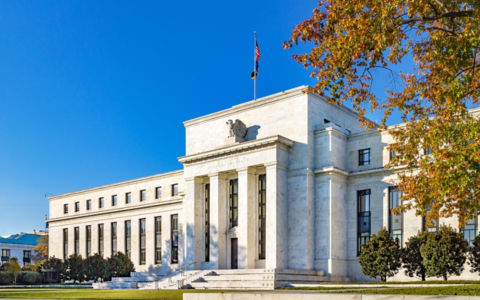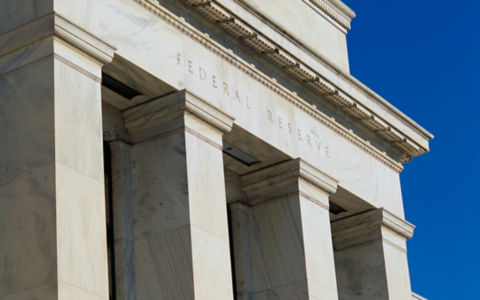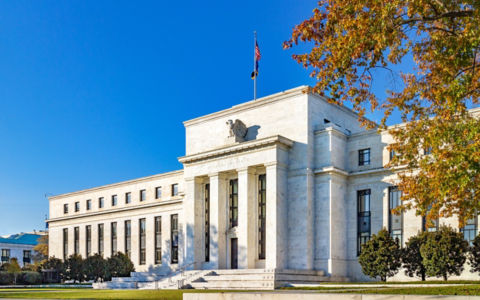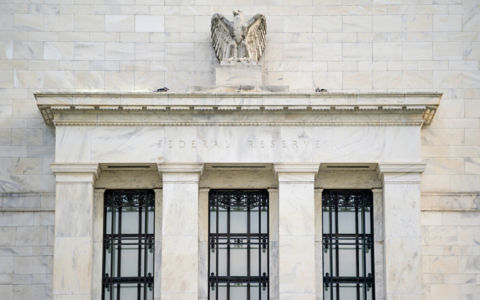Skip to main content
- Funds
- Insights
- Capabilities
- About Us
- My Account
Our Funds
Fund Documents
Global Multi-Strategy Fund

FOMC: Easing into uncertainty
Fixed Income Portfolio Manager Jeremy Forster profiles the Fed's December rate cut, labor market trends, inflation pressures, and the role of anticipated changes to FOMC leaders in 2026.

Chart in Focus: Three reasons to keep the faith in US credit quality
Our fixed income experts highlight the resilience of US institutional credibility.

What’s the Fed got to do with it? The impact of rate cuts on CLO equity
Our CLO experts discuss the implications of Fed rate cuts on CLO equity, emphasizing its potential to maintain income amidst rate sensitivity challenges in other credit assets.

The Fed architecture under scrutiny: What are the investment implications?
Macro Strategist Juhi Dhawan looks at how changes in the Federal Reserve's personnel and decision making could impact policy, the US dollar, and financial markets.

Twilight zone: how to interpret today’s uncertain macro picture
Macro Strategist John Butler and Investment Director Marco Giordano explore how to interpret today’s uncertain macroeconomic picture and its key implications.

Rethinking the Fed’s dual mandate
Is it time for a fresh perspective on the dual mandate? Fixed Income Portfolio Manager Brij Khurana explores the potential benefits of reorienting monetary policy toward maximizing productivity.

One Big Beautiful Bill: Why it’s “buy now, pay later” for markets
Multi-Asset Strategist Nanette Abuhoff Jacobson weighs the near-term benefits of the recently enacted US tax and spending bill against the longer-term costs, and suggests several investment implications.

Weighing the economic winners and losers of the One Big Beautiful Bill Act
Macro Strategist Juhi Dhawan unpacks the impact of One Big Beautiful Bill Act, including its potential effect on economic growth, corporate earnings, and the US government deficit and debt.

Severance: The split between the economy and the markets
While markets have bounced back since Liberation Day, policy changes and macro data bear watching. Heading into the second half of 2025, we're focused on relative opportunities across asset classes created by disconnects and divides between markets and economies.

The power of positive and pragmatic thinking
While markets have a lot to worry about, from government policy to geopolitics, Global Investment and Multi-Asset Strategist Nanette Abuhoff Jacobson looks at the world from another angle: What could go right? She offers five reasons for positive thinking and considers the investment implications.

International equities: Five reasons they may not be a one-hit wonder
Global Investment and Multi-Asset Strategist Nanette Abuhoff Jacobson explains why those who doubt the staying power of the recent outperformance of international equities may want to reconsider.

Fiscal versus tariffs: what wins out for Europe?
Just as investors were starting to explore the potential for growth in Europe, Trump’s tariffs landed. To what extent is the case for Europe still intact?

Sacrificing stocks on the altar of trade
Brij Khurana discusses the Trump administration's new stance on trade and its impact on the US economy, global markets and asset prices.

Oh baby, baby, it’s a wild world
Just one quarter into the year, many policy and economic assumptions have been turned on their head. What does it all mean for equity, bond, and commodity markets around the world? Members of our Investment Strategy & Solutions Group offer their outlook.

Shrinking the government footprint: Medicaid cuts and America’s economic health
Macro Strategist Juhi Dhawan looks at what changes to the mammoth US Medicaid program could mean for economic growth, employment, inflation, and financial markets.

US debt dynamics: Is there a path to sustainability?
How worried should investors be about US debt sustainability? Macro Strategist Michael Medeiros discusses the implications of soaring US federal budget deficits and the likely bond market response.

What an “America first” foreign policy may mean for markets
Fixed Income Portfolio Manager Brij Khurana explores the potential market impacts of President Trump's "America first" foreign policy. From regional hegemony to global economic dominance to tariffs applied for strategic geopolitical gain, discover how these shifts could affect investors.

Executive Summary 2025: Finding opportunity amid uncertainty
In this article, we summarize some of the key findings from our 2025 outlooks, from divergence-driven opportunities to the impacts of AI and beyond.

Trump 2.0: Time to curb your enthusiasm?
How does an allocator navigate markets when so much about the policy landscape is unknown? Our Investment Strategy & Solutions Group offers their views on the new political realities in the US and their global implications, including for equities, bonds, and commodities.

Listening to voters’ economic concerns should mean less fiscal spending
Fixed Income Portfolio Manager Brij Khurana explains the likely economic and market impacts of Trump administration policies, including potential winners and losers from drastic fiscal spending cuts.

Trump 2.0: US election market impacts
In the wake of the US election, macro strategists Juhi Dhawan and Michael Medeiros join host Thomas Mucha to discuss the market, policy, and geopolitical implications of Trump 2.0.

The revenge of the monetarists
Fixed Income Portfolio Manager Brij Khurana makes the case for a monetarist explanation for moderating inflation.

Governments have been slow to reduce their fiscal deficits — it could cost them
Our expert explores the investment implications of continued excessive deficit spending by G7 countries.

Biden 2.0: National security and investment themes
The geopolitical and investment implications of a potential second Biden term.
FOMC: Stable policy amid market volatility
The Fed is holding steady amid market turmoil. See our quick notes on the FOMC's March policy statement, forecasts, and the Fed chair's press conference.

The Trump/Biden rematch: Market implications of unprecedented policy divergence
Macro Strategist Juhi Dhawan discusses six key areas of policy debate in this year's US election that she expects will matter most to markets, from the tax and spending plans to trade and geopolitics.

Is the US economy really that different since COVID?
US economists have been touting the resilience of the post-COVID economic rebound. Brij Khurana dissects several key economic indicators to see what's really changed since 2019.
US debt-ceiling risk: Justifiable jitters?
With markets on high alert around the US debt-ceiling standoff, Macro Strategist Juhi Dhawan lays out some possible paths forward and weighs the economic risks.
Debt and dysfunction in Washington: The US hits the ceiling (again)
Global Investment Strategist Nanette Abuhoff Jacobson talks to Macro Strategist Mike Medeiros about the US debt-ceiling showdown and considers its potential investment implications.
Peak inflation, back to goldilocks? Not so fast
Portfolio Manager Nicholas Petrucelli explains why the market could be underestimating just how complex and volatile the global economic cycle is and details the implications for inflation.

Why Europe could surprise in 2023
Eoin O’Callaghan and John Butler discuss the contrasting prospects of the Euro Area and the UK and why 2023 could bring positive surprises in the region.
A new blueprint for US trade: Building a more resilient, sustainable, and competitive economy
Macro Strategist Juhi Dhawan explains how the Biden administration is reshaping US trade policy to reflect today's global realities, including supply-chain challenges, decarbonization, and geopolitical turmoil.

2023: The year of disinflation for the US economy
In the coming year, US Macro Strategist Juhi Dhawan expects to see inflation begin to decline, the economy adjust to higher interest rates, and labor markets feel the pain of restrictive Fed policy.
By design and by default: Industry consolidation gathers steam across India
Equity Portfolio Manager Murali Srikantaiai sees increased industry consolidation in India as a largely positive trend from which some equity investors can (and should) seek to benefit.

Wind at their backs: What the IRA means for clean energy industries
Members of our energy and utilities teams break down the range of impacts of the US Inflation Reduction Act on companies in their sectors.




URL References
Related Insights